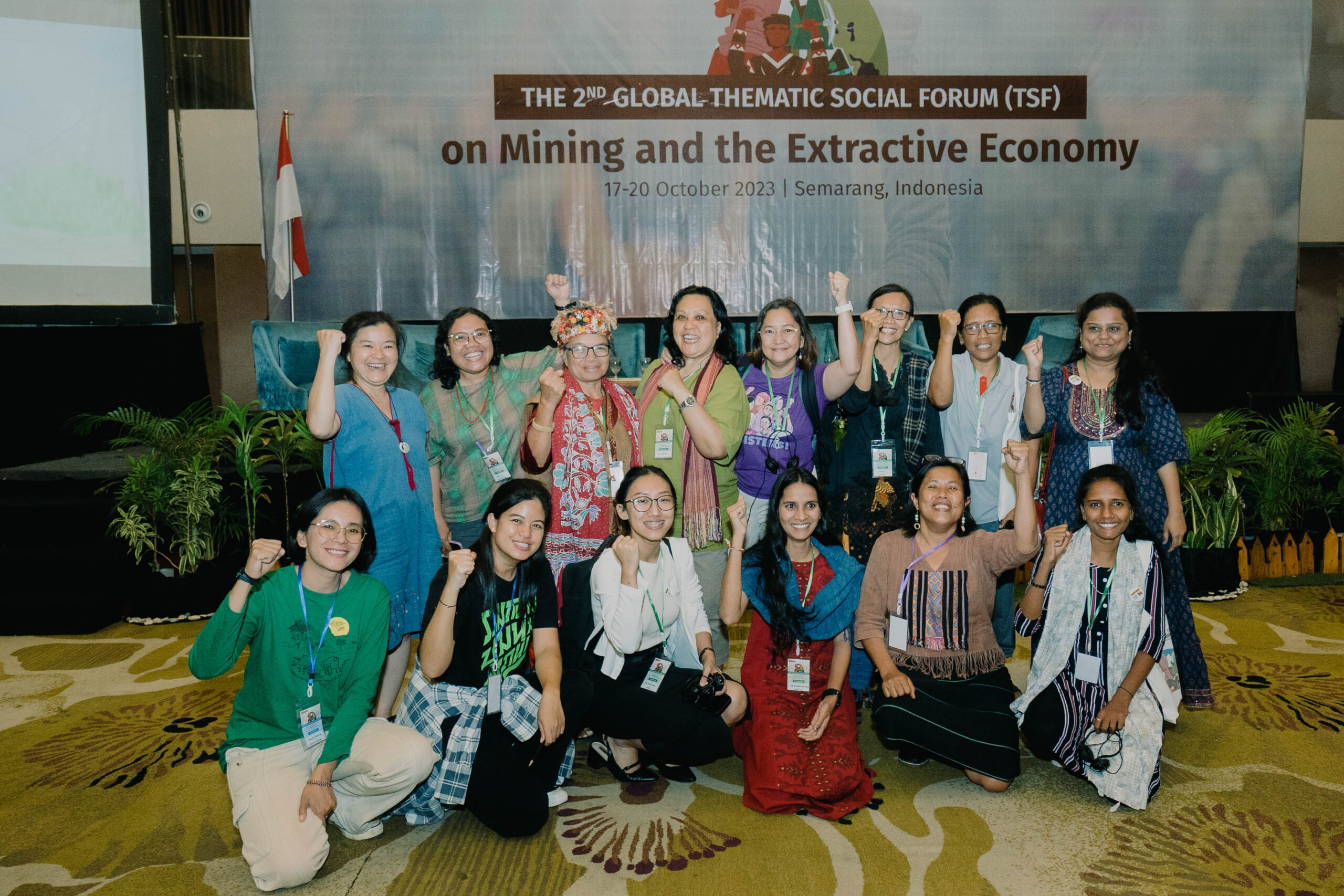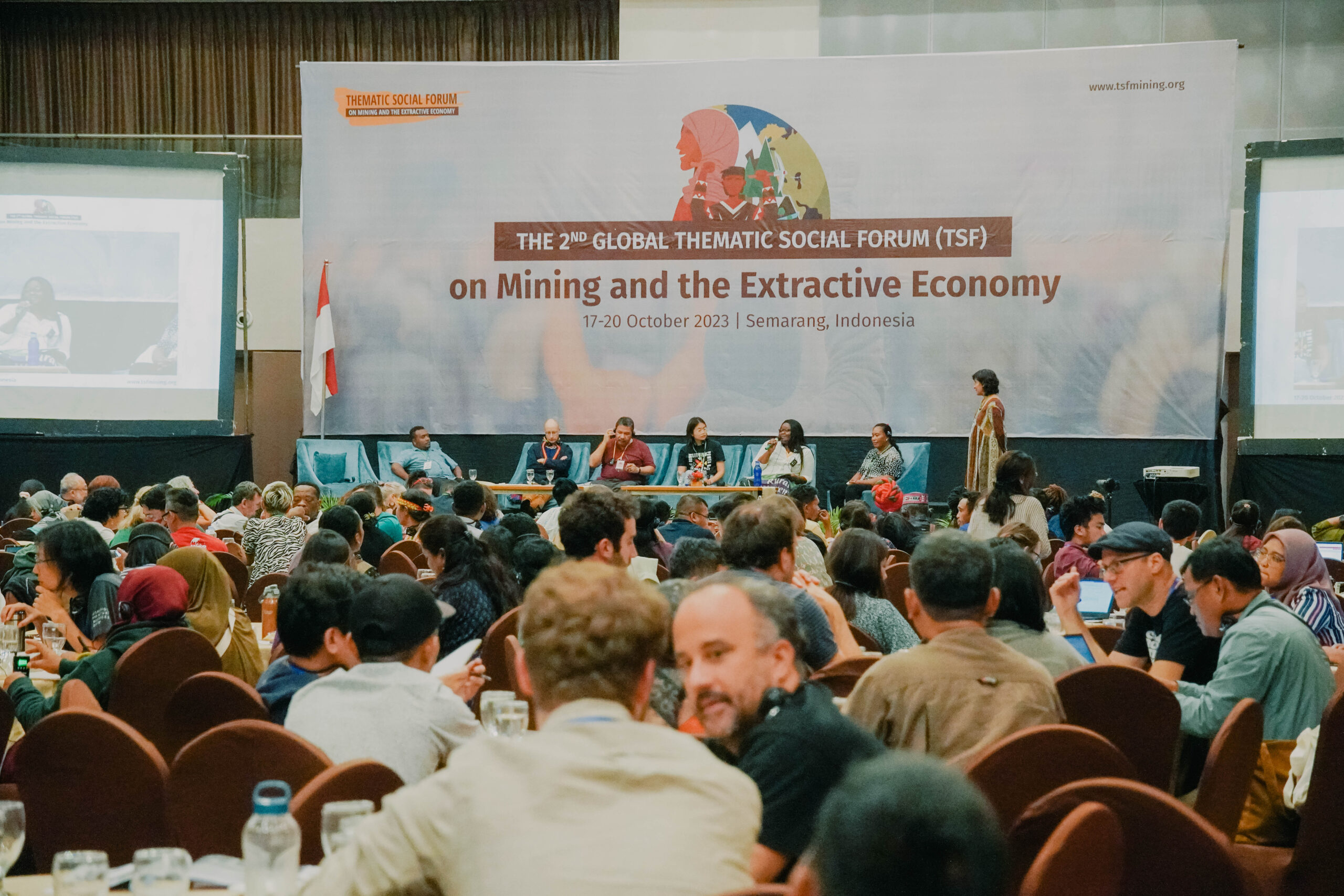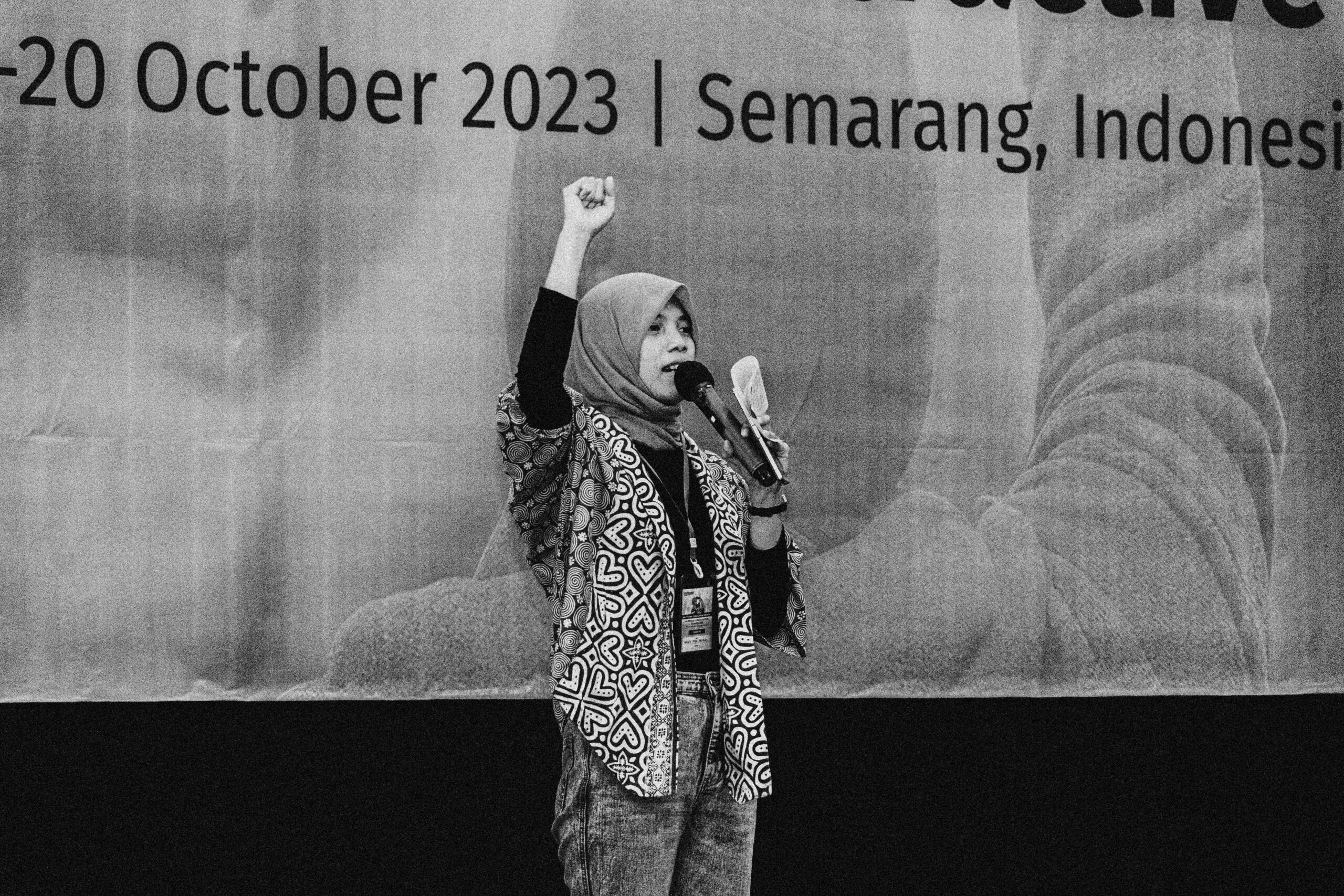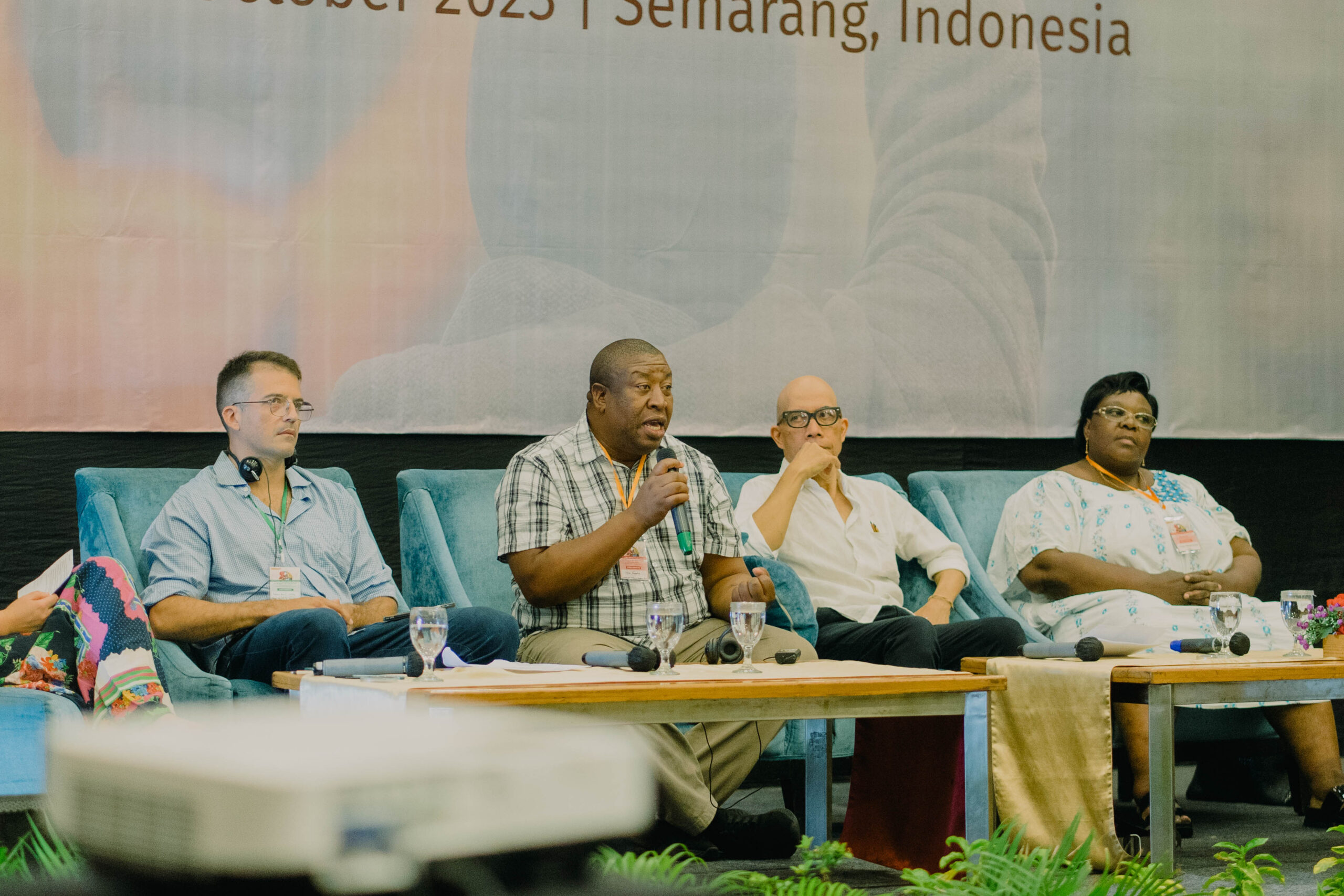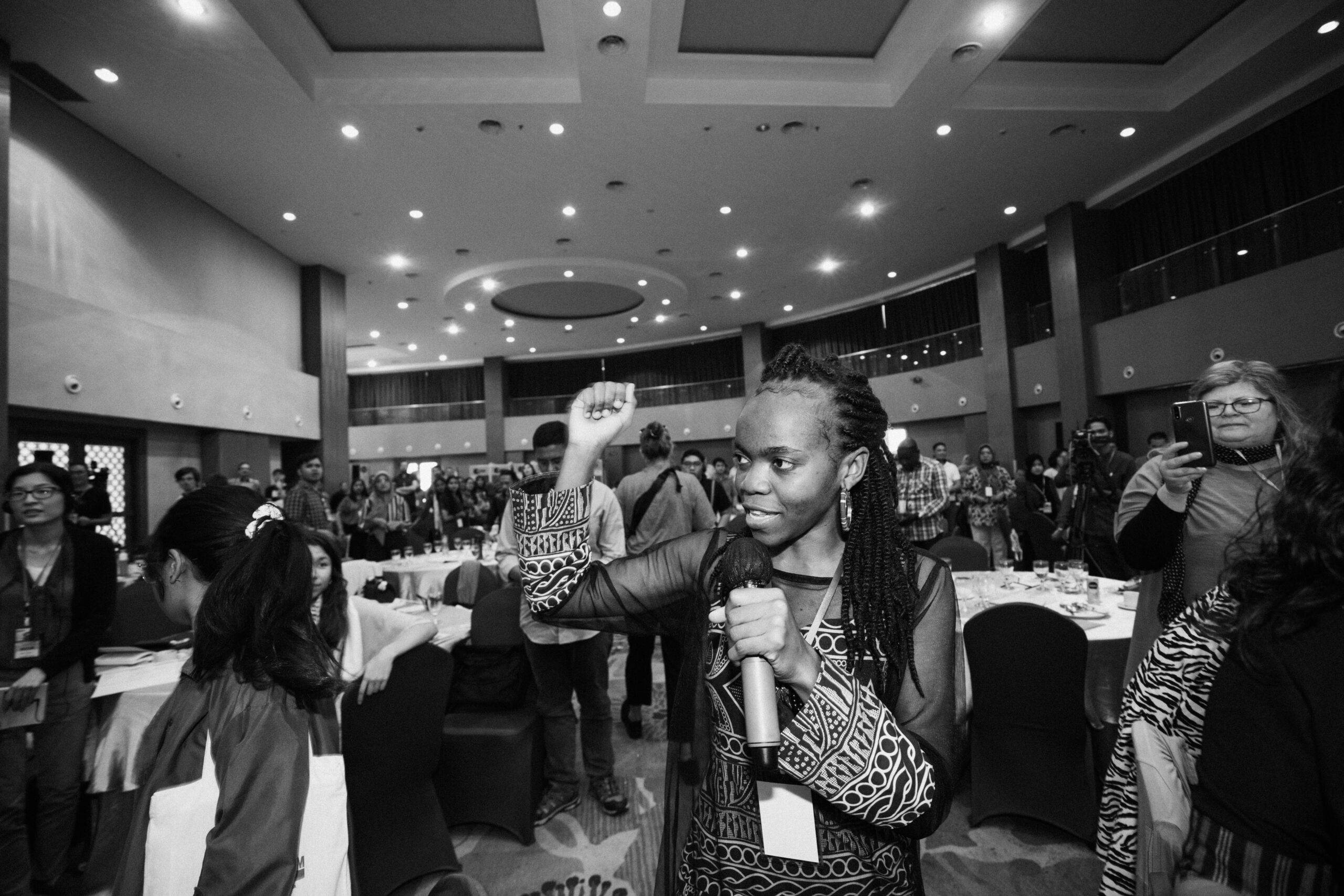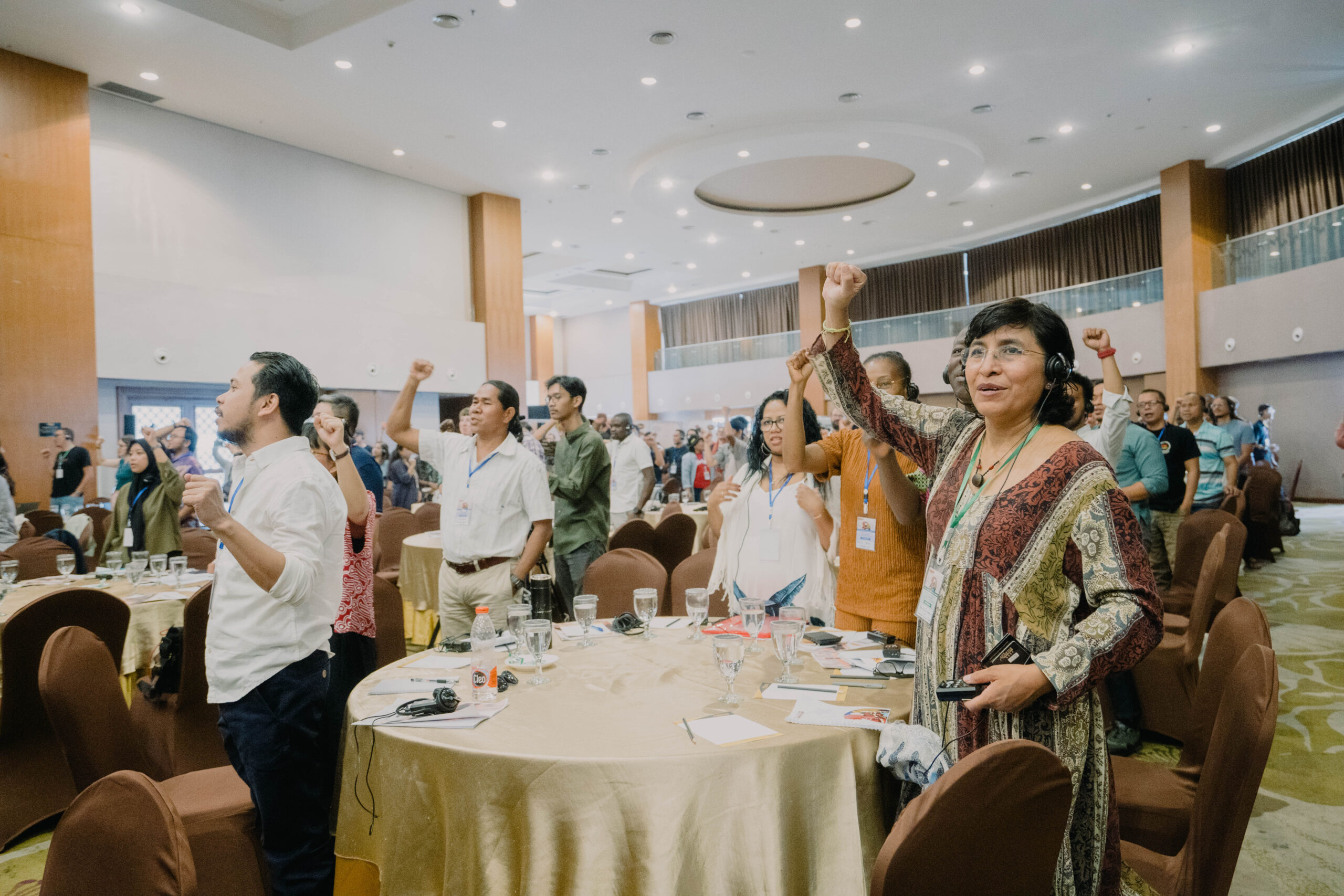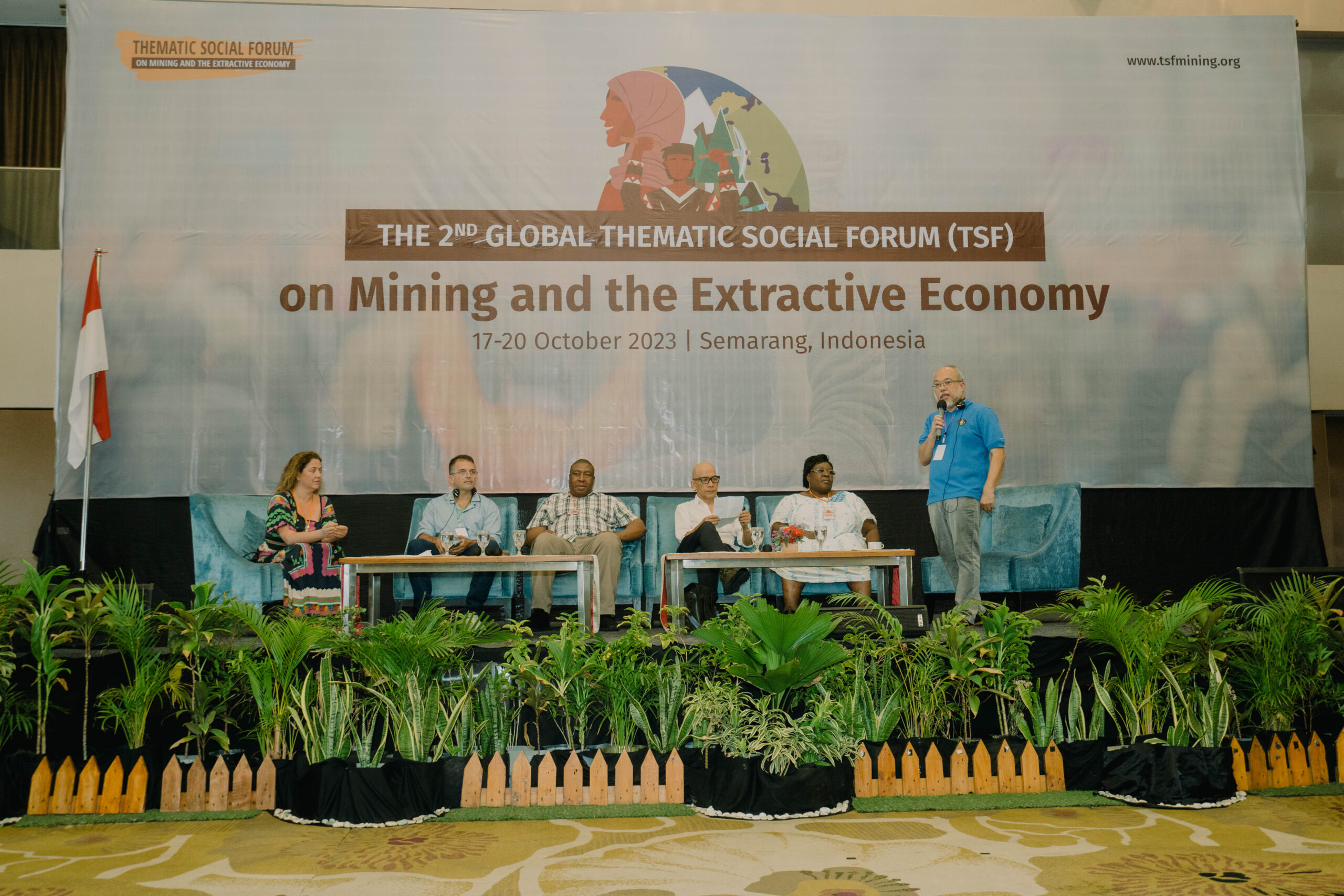TSF Mining Day 2, 18 October 2023
Our common thinking on the nexus between Climate Justice, Just Transition and Transition Minerals, and the global campaign on the Right to Say No.Many voices today would shape our common thinking in our two main areas of focus: the nexus between Climate Justice, Just Transition and Transition Minerals, and the global campaign on the Right to Say No.
TSF-Mining 2023
Day 2, Wednesday 18 October 2023
As Day 2 of the TSF begins, with the threads of conversations from the previous evening’s welcome dinner still weaving new possibilities within and between us, we lost no time in jumping into more sharing and planning. Many voices today would shape our common thinking in our two main areas of focus: the nexus between Climate Justice, Just Transition and Transition Minerals, and the global campaign on the Right to Say No.
Representatives from communities most affected by the Unjust Transition brought to life the struggle against the constantly expanding extractive industry – for so-called ‘green’, and also now ‘blue’, economies, in order for exploiting nations to continue with Business as Usual.
In ‘Seabed and Sacrifice Zones’ Pacific Islanders united Ocean Defenders from the Pacific, Africa and Asia against the devastation wrought on our largest commons – our oceans. Also, be they so interconnected, on the livelihoods of Indigenous, coastal peoples and fisherfolks who have been guardians of our waters for thousands of years.
Terrestrial mining expansion also belies their ‘if here not there’ tales, with examples shared of lithium mining in the ‘lithium triangle’ crossing the Andes, and nickel mining threatening to annihilate pepper farmers in Sulawesi.
We discussed how this assault is sustained and embedded by global trade rules and free trade agreements proliferating every region – whose benefits are never global nor free. Trade justice activists, trade unions and grassroots communities voiced the importance of joining forces to ensure workers aren’t used as pawns to justify exploitation of people and place.
The Right to Say No then took centre stage. A selection of voices and perspectives set the scene – describing the diversity and richness of resistance, before we once again broke out into sessions exploring more deeply different aspects of this essential component of our ability to move towards a life-sustaining future.
Our greatest asset in the assertion of this right being ourselves, our communities, and our ability to stand up, fight back. Mobilisation and protest are powerful. Yet our civic right to protest is being squeezed, even smothered, in the name of the ‘public interest’, better read as corporate interest.
We heard how community members are being criminalised, threatened, attacked and killed. In the Majority World it is becoming ever more dangerous to defend human and nature’s rights. How can we strengthen protections for those on the frontlines? How can we rapidly respond with solidarity and advocacy?
International human rights and other normative and legal instruments were discussed as possible tools in the toolkit – such as a binding Business and Human Rights Treaty, negotiations for which are still ongoing. Yet also considered was the possibility of creating a new law paradigm where nature is also considered to possess rights – namely the right to exist, to evolve, to be restored and to thrive. Ecuador continues to lead the way in showing how Rights of Nature could be used by communities to say no to mining, as was the case for Los Cedros forest. Yet Rights of Nature also pens a new script- one that speaks of interdependence, renewal and respect.
A new story, or an old one – as the conversation on Traditional Leadership underlined. Indigenous and Tribal Peoples already speak that language – the one behind the one of rights, the one that has been spoken down the line of ancestors and on towards future generations. Reclaiming territorial sovereignty goes well beyond ‘consultation’ or manufactured consent.
Finally and fully, women again stepped up. As women are disproportionately affected by extractivism, so too are they leading the resistance. Women’s leadership and eco-feminism are powerful and necessary ingredients for a world Beyond Extractivism. Onward!

